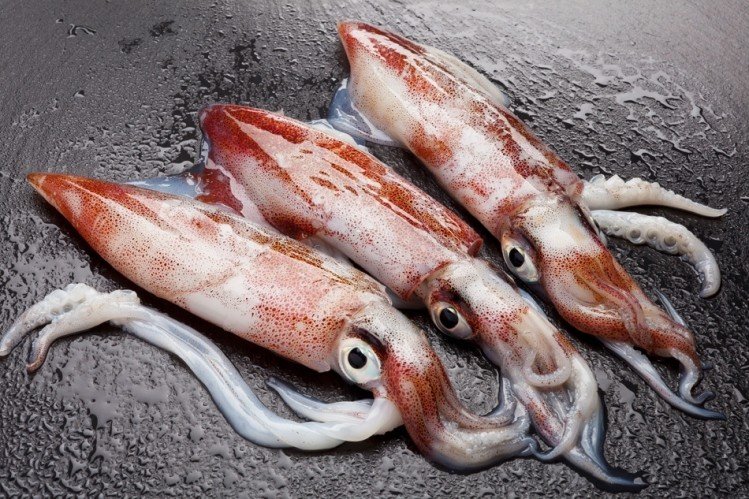Benefits of cuttlefish, and information on the nutritional properties of cuttlefish, also known as cuttlefish.

The cuttlefish is a cephalopod mollusk that belongs to the order of the Sepiids, which depending on where we are can be known by different names. In Seville, for example, they are known by the name of cuttlefish.
They have an elongated body with 10 tentacles, tending to live in salt water seas and oceans.
Unlike the coquinas , the cuttlefish does have a better season, this being from June to the end of the year (December), although we must say that it is also possible to find them practically all year round in the market.
Nutritional properties of cuttlefish
From a nutritional point of view, as with most shellfish and mollusks, cuttlefish is a food that stands out for its very high content of good quality proteins, providing the majority of essential amino acids.
They are also low in fat and therefore in calories. In fact, 100 grams of cuttlefish provide just 0.90 grams of fat and only 75.30 kilocalories. Of course, they have a high cholesterol content, so their consumption is not recommended in people with high levels of cholesterol and triglycerides.
Regarding its vitamin content, it mainly provides vitamin A and B complex vitamins (B1, B2, B3, B6, B9 and B12), in addition to vitamin E.
It also provides minerals, among which we can highlight the presence of calcium, iron, iodine, magnesium, zinc, selenium and sodium.
Nutritional contribution of cuttlefish
| Calories | 75.30 kcal | ||
| Protein | 16.10 g | ||
| Carbohydrates | 0.70 g | ||
| Total fat | 0.90 g | ||
| Vitamins | Minerals | ||
| Vitamin A | 25 µg | Iron | 0.80 mg |
| Vitamin B1 | 0.07 mg | Magnesium | 30 mg |
| Vitamin B2 | 0.05 mg | Potassium | 273 mg |
| Vitamin B3 | 6.75 mg | Zinc | 1.20 mg |
| Vitamin B6 | 0.39 mg | Iodine | 64 µg |
| Vitamin B9 | 13 µg | Calcium | 27 mg |
| Vitamin E | 2.40 µg | Selenium | 65 µg |
Benefits of cuttlefish
The cuttlefish stand out especially for its high content of protein of high biological value (also known as good quality protein), which means that are rich in all essential amino acids.
They provide cholesterol, a nutrient wrongly reviled by many but which is in fact essential for body tissues. However, when eating foods with a lot of saturated fat and cholesterol, it is evident that this will tend to accumulate in the arteries, thus raising blood cholesterol levels.
It is an antioxidant food thanks to the presence of vitamin E, which helps prevent the body from attacks by free radicals, protecting and improving the immune system.
It also provides good amounts of B vitamins, among which we can highlight the presence of folic acid or vitamin B9 (which helps prevent defects in the placenta and the fetus, hence it is essential for all those women who wish to stay pregnant women), vitamin B12 (beneficial for the nervous system, heart and brain) and vitamin B3 (essential for the process of energy transformation from macronutrients).































